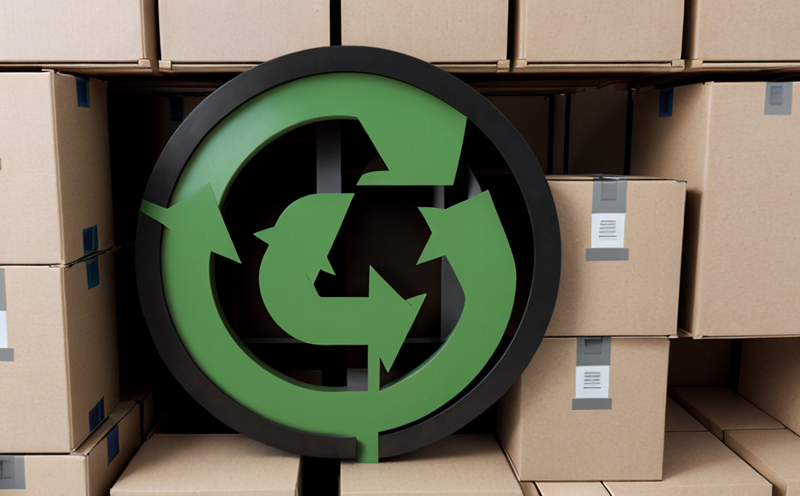CEN/TR 16957 Circular Economy Standardization Audit in Waste Sector
The CEN/TR 16957 standard is designed to foster a more sustainable and circular economy by providing a framework for the design, production, use, reuse, recycling, and disposal of products. This audit service ensures that companies are adhering to this standard, thereby promoting sustainability within their operations. Compliance with such standards can significantly reduce environmental impacts while fostering economic growth through resource efficiency.
Our CEN/TR 16957 Circular Economy Standardization Audit in the waste sector involves a thorough review of processes and practices related to product lifecycle management. This includes evaluating how materials are sourced, manufactured, used, reused, recycled, and disposed of throughout their entire life cycle. By auditing these aspects against the requirements outlined in CEN/TR 16957, we help organizations ensure they meet the latest regulatory expectations and best industry practices.
The audit process begins with an initial assessment of current operations to identify areas where improvements can be made towards achieving circular economy principles. Following this evaluation, detailed recommendations are provided on how to implement changes that align better with the goals set forth by CEN/TR 16957. These recommendations may include strategies for improving resource efficiency, enhancing product design for easier disassembly and recycling at end-of-life, increasing use of recycled content in new products, and developing robust take-back programs.
During our audits, we also pay close attention to the traceability of materials used across supply chains. Ensuring full transparency regarding sourcing practices helps prevent illegal or unethical activities while promoting fair labor standards and responsible environmental stewardship. Furthermore, by focusing on these key areas during the audit process, businesses can better position themselves for future opportunities in emerging markets focused on sustainability.
Our team of experts has extensive experience working with various stakeholders involved in waste management and recycling processes. From municipal governments to private enterprises, we have successfully conducted audits tailored specifically to each client's unique needs. With our deep understanding of both the technical aspects of circular economy standards as well as practical application strategies, we offer comprehensive support throughout every stage of your audit journey.
By partnering with us for a CEN/TR 16957 Circular Economy Standardization Audit in Waste Sector, you gain access to valuable insights that will help drive positive change within your organization. Our approach not only ensures compliance but also encourages continuous improvement towards more sustainable practices.
Why It Matters
The importance of complying with standards like CEN/TR 16957 cannot be overstated, especially within the waste management and recycling sector. These regulations play a crucial role in fostering an environmentally friendly approach to handling materials from cradle-to-grave. Adherence to such guidelines helps organizations reduce their carbon footprint while simultaneously promoting resource conservation efforts.
From an operational perspective, meeting these requirements often translates into cost savings through reduced waste generation and improved efficiency in material recovery processes. Additionally, companies that demonstrate strong commitment to sustainability are increasingly seen as leaders within their industries—a key factor influencing consumer trust and brand loyalty.
In today’s competitive market landscape, being able to showcase adherence to global standards such as CEN/TR 16957 can give businesses a significant advantage. It signals to investors, customers, regulators, and other relevant parties that your organization prioritizes responsible environmental practices. This recognition can open doors for partnerships or collaborations with likeminded entities committed to building a greener future together.
Moreover, compliance with these standards is essential for avoiding potential legal risks associated with non-compliance penalties or reputational damage due to negative publicity. By staying ahead of regulatory changes and industry trends through regular audits conducted by experts like ours, you ensure that your business remains adaptable and resilient in the face of evolving challenges.
Customer Impact and Satisfaction
Implementing a CEN/TR 16957 Circular Economy Standardization Audit brings numerous benefits to customers across different sectors. For quality managers, it provides assurance that processes are aligned with the latest industry best practices, enhancing overall product quality control. Compliance officers gain peace of mind knowing they have met all necessary regulatory requirements, thus minimizing legal risks and potential fines.
R&D engineers benefit greatly from such audits as they receive valuable feedback on how to optimize their designs for better resource efficiency and recyclability. Procurement teams can leverage this information when sourcing materials that meet stringent sustainability criteria, ensuring long-term cost savings while supporting ethical business practices.
Ultimately, customers who partner with organizations undergoing these audits experience improved service levels due to enhanced operational efficiencies within supply chains. This leads to higher customer satisfaction scores and stronger relationships built on mutual trust and shared values regarding environmental responsibility.
Environmental and Sustainability Contributions
The implementation of CEN/TR 16957 Circular Economy Standardization Audits contributes significantly to environmental protection and sustainability goals. By focusing on reducing waste generation, improving resource utilization rates, and promoting recycling initiatives, these audits help mitigate adverse impacts associated with landfills and incineration facilities.
Through our audit services, we assist clients in identifying opportunities for integrating circular economy principles into their business models. This includes encouraging the use of recycled inputs wherever possible, designing products that can be easily disassembled at end-of-life stages, and implementing robust take-back programs to ensure proper handling and processing of waste materials.
Our approach aligns perfectly with global commitments aimed at addressing climate change issues such as reducing greenhouse gas emissions. By fostering a culture of continuous improvement around sustainable practices, we contribute towards achieving broader societal objectives related to environmental conservation efforts worldwide.





